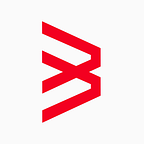DAOs- The Illusion of Decentralisation?
By Kunwar Vishishta Rakesh, Associate at BVVentures
A DAO or Decentralised Autonomous Organisation is a community led entity where the governance mechanism is represented by rules encoded in a smart contract controlled by all the organisation members with no central authority. There are over 4,800 DAOs in existence today with notable DAOs including the likes of BitDAO, UniSwap, UXDProtocol.
To form a DAO, a group of people must agree on the initial architecture and decide who holds tokens, what rights do tokens create, and what smart contracts exist at the beginning. Answering these questions and committing them to code creates the initial state, the genesis block of the DAO.
The rules of the DAO are created by the core community members and are visible, verifiable and publicly auditable so any potential member can fully understand how the protocol is to function at every step. A DAO raises funding through issuing tokens- the protocol sells tokens to fill the DAO’s treasury. The members can purchase tokens in exchange of fiat currencies and token holders are given voting rights in proportion to their holdings in the DAO. Once the predetermined funding is complete, the DAO is deployed. Once the code is pushed into production, it cannot be changed unless a consensus is reached through members’ voting.
Presently, DAOs operate as a collective with somewhat idealistic democracy. No contributor has more power than any other contributor. DAOs strive to achieve an alignment of incentives for all community members which means that all community members have to be outspoken with their voting and only approve proposals that serve the DAO’s and the community’s best interest.
The data on the early DAO collectives points towards the trend that the perfectly democratic operation that DAOs aspire to have has not been achieved yet. There are Discord participation (proposal generation) and Governance participation (voting) of different DAO collectives. As most DAO collectives use Discord as their communication platform, these DAOs create servers on Discord that permit contributors to organise discussions within specific channels such as operations, events and memes. A survey conducted on the Discord participation of flat DAOs such as RaidGuild, HoneyDAO, VitaDAO and LexDAO, showed that there was a trend of “exponential decay” in participation which means that the top 3 or 4 users commented more than anyone else in the community as there was a steep decline in the frequency of participation between the top participant and the fifth most frequent participant in each collective. This trend suggests (but does not prove) that a very small number of individuals drive discussions within the community and carry forward the efforts of the DAOs. This can also be perceived as an emergence of informal hierarchies in DAOs. This survey also showed that the top commenter made an average of 6.8 times more comments than the tenth most frequent commenter in the sample DAOs.
The governance in DAOs showed a similar decline in participation where the proposals were made by only a handful of participants similar to the Discord participation. This indicates that only a few users initiate governance actions in the sample DAOs. Even the voter participation showed a similar but less drastic trend.
Looking at these trends of community and voting participation, it can be inferred that DAOs are operated by a small group and not all members of the community equally. The emergence of this informal hierarchy negates the dream of decentralised flat organisations. However, this finding does not neutralise the potential of the DAO infrastructure completely as we still are in the infancy stage of the utopian dream of decentralisation.
